Healthy Lifestyle Tips
Prepare yourself mentally and physically for everything life throws at you, with Nikki's top ideas and tips.
Fitness in my fifties *
So, I'm in my 50's , actually closer to 60 than 50 now, plus I'm menopausal and was recently diagnosed with arthritis in my hip . BUT I'm still going strong and in fact I'm stronger and leaner than I have ever been. My fitness journey started later than most but I have still managed to make changes that are making my more senior years easier . Perfect example, my surgeon when looking at my hip and arthritis said, because yur core and musculature are so strong, you are not in as much pain as you might be .
So , whatever age you are, it's not too late to start making changes and seeing the benefits
Don't hesitate to get in touch if you have any questions
HOW TO DIET SUCCESSFULLY! *
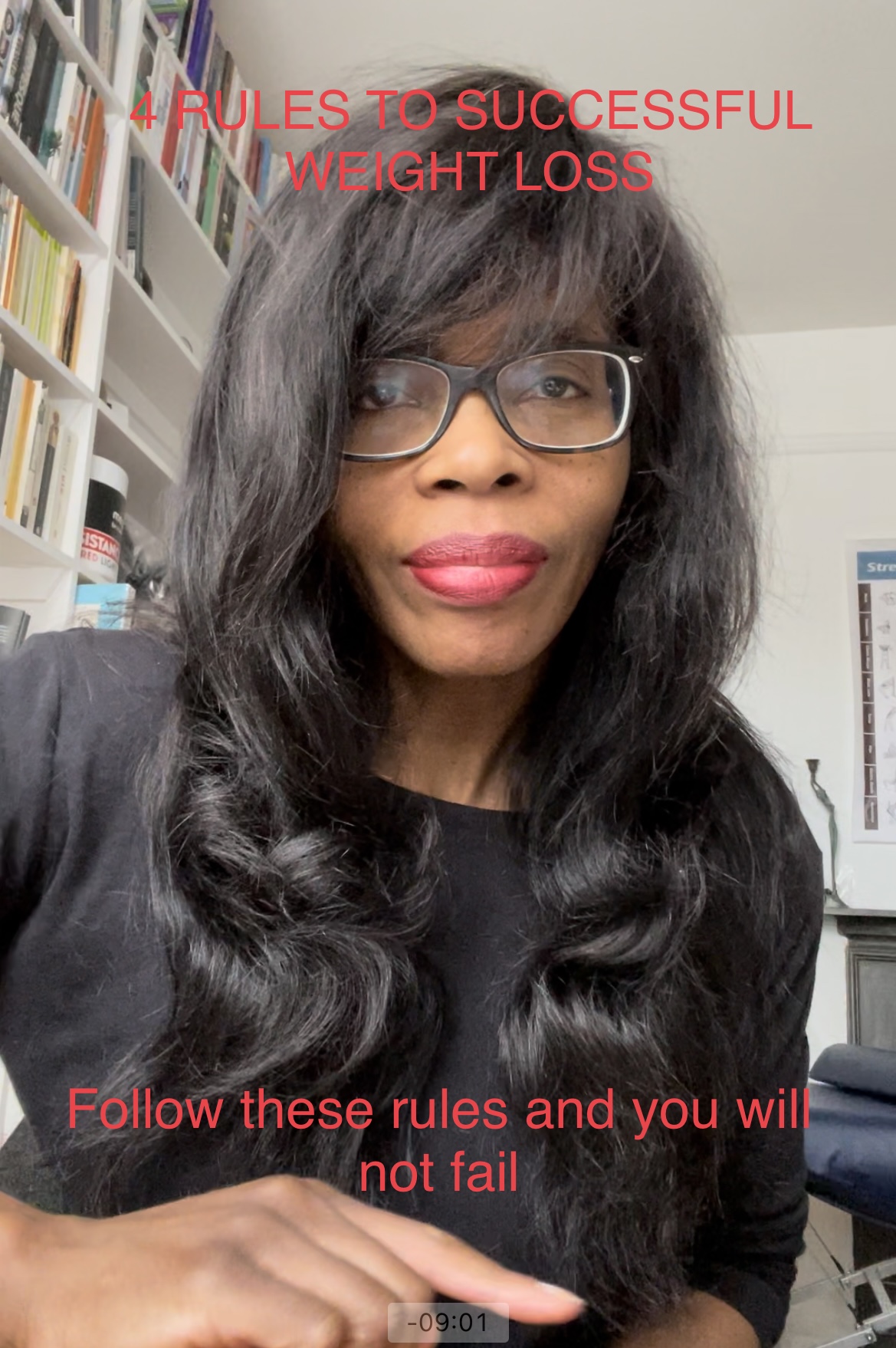
As a personal trainer, one of the most common questions I hear is “Why am I not losing weight?” or “why is my diet not working?”
I work with so many people who have been trying to lose weight unsuccessfully for years, or, which perhaps is even more frustrating, who lost loads of weight when they first started dieting but have since put it back on and now can’t seem to shift it.
There are so many reasons why people struggle to lose weight and so many tips and strategies to help BUT, if you are serious about losing weight and by this I mean, reducing your body fat and improving your body composition then follow these 4 rules.
If you follow these rules consistently, you will lose weight . These 4 rules ultimately form the best diet ever..
1. MAKE SURE YOU ARE IN A CALORIE DEFICIT - This is without doubt the most important and yet most overlooked tip. To lose weight healthily you need to set a realistic calorie deficit. Note I said it has to be realistic, too big a deficit will ultimately be unsustainable and will cause future issues. Remember though, although the calorie deficit is key, don’t lose sight of nutrient density too. So for example, 100 calories of vegetables will provide more fibre and vitamins and thus be better for you, than 100 calories of biscuits.
So what is a calorie deficit, how do you work it out and how do use it?
Simply your body burns a certain number of calories daily. This number is known as your TDEE (Total Daily Energy Expenditure). It is impossible to know one’s exact TDEE but there are ways of working out an estimated figure. You can google TDEE calculator and you will find numerous calculators. Or you can get a rough estimate by simply multiplying your bodyweight in pounds by 15.
Whichever method you use, you should now have an estimated daily calorie requirement. Then, to create a heathy deficit, subtract between 250 - 500 calories. I would always strongly recommend that your deficit is no more than 500 a day.
So now aim to stick, at least 90% of the time, to this deficit for four weeks and then check progress. if after four weeks there has been no progress then reduce your intake by no more than 100 calories for another four weeks.
How do you track and maintain your calorie deficit?
The best way is to consume fewer calories, combined with increasing physical activity levels. We will talk about physical activity later but first calories. Some people love to count calories and track their consumption, but this doesn’t work for everybody and in fact I generally wouldn’t recommend it if you are somebody who knows that counting calories might become an obsession OR if you know that your lifestyle will not allow you to count calories consistently and accurately. If you think that counting calories might work for you, I would suggest downloading a calorie tracker rather than trying to do it manually . Also, invest in scales designed for counting calories as well as weighing small amounts of food.
If counting calories is not for you because you just don’t have the time or you know that it potentially could become an obsession. (If you are somebody that weighs yourself daily and stresses about any increase or lack of decrease then probably counting calories is not for you) then maybe try the following. Create your deficit by tracking portions rather than calories and also look at the type of food that you are eating. An adequate amount of protein at each meal is essential for effective fat loss. So if for example, you are a toast and cereal breakfast eater, with a sandwich for lunch and pasta for dinner , look at how you can include more protein. Maybe breakfast on eggs and replace your standard sandwich with a chicken or turkey salad open sandwich. Try these tips and you should see progress;
- Plan your meals in advance, even if you only for a couple of days ahead. If you plan you are more likely to stick to your calorie goals.
- Ensure that you are eating adequate protein at each meal (see later to work out what adequate protein looks like)
- Dont drink your calories - a medium sized takeaway latte is c. 200 calories ( equal to two eggs) and alcoholic beverages are also highly calorific. You don’t need to give these treats up entirely but don’t forget to take the calories into account
- Limit highly processed foods such as sugary drinks, fast foods and breakfast cereals which will always be higher in calories than minimally processed foods such as lean proteins, fruits, vegetables.
- Eat primarily home cooked meals which will allow you to control your ingredients and portion sizes.
- Don’t cut out foods that you love just be aware of the more highly calorific foods and adjust accordingly. For example if you know that you will be eating a takeaway in the evening, make sure that your breakfast and lunch for that day are less calorific
2. ENSURE YOU ARE EATING ADEQUATE PROTEIN - It is absolutely essential that you include carbohydrates and fat in your diet. You should never cut out food groups, but if your goal is to lose fat, then ensuring that you consume adequate amounts of lean protein is essential. Protein promotes muscle growth and fat loss, plus it provides satiety.
If you measure and track your food via an app, then you can be very specific about your protein intake. I would suggest that you aim for between 1.6 to 2.2 grams of protein per kg bodyweight. Alternatively, multiply your goal weight by 0.7 and make that your minimum daily protein goal.
If you are not tracking and measuring your meals, simply ensure that you are eating lean protein at every meal. Ideally around a third to half of your plate should be made up of protein. Remember do include carbs and healthy fats in your diet but, where possible reduce the amount of naked carbohydrates ( carbs that are not paired with good fats or protein) that you consume.
3. INCLUDE RESISTANCE / STRENGTH TRAINING IN YOUR EXERCISE REGIME - Ultimately the best way to get good results is CONSISTENCY, and you are more likely to be consistent if you enjoy what you are doing. So if you love running outside and hate lifting weights in a gym then of course continue running. BUT if you want sustainable results and you want that toned, lean or shredded look then you will need to add some form of resistance training to your regime, whether this take the form of bodyweight training or training with free weights, resistance machines or resistance bands.
Why is resistance training so important?
Resistance training builds muscle mass. The more muscle mass you have, the higher your metabolic rate will be. The higher your metabolic rate, the more calories you will burn.
Plus, after a strength training session, your body will still be burning calories for the next 24 - 48 hours as it works to repair stressed muscle tissues . This phenomenon is called excess post-exercise oxygen consumption (EPOC) though it is more commonly known as the after burn effect. So, in other words you are still benefitting from your workout , up to 48 hours after it.
Oh and just a reminder, weight training doesn’t make you bulk up. If you want to bulk up you need to actually need to be eating in a calorie surplus, training with really heavy weights and eating shed loads of protein. Trust me, getting bulky is hard work, bodybuilders do not have it easy.
Cardio is also key to good health and of course burns calories, in fact you will probably burn more calories during a cardio session than a strength session, but research shows that the after burn effect is lower after a cardio session. Cardio can also decrease our lean muscle mass which will in turn reduce our calorie burn. Long bouts of steady state cardio can also lead to an increase in cortisol levels which in turn encourages our body to store fat.
4. MAKE SURE YOU ARE GETTNG ENOUGH REST / MANAGE YOUR STRESS
Stress has a physical, as well as mental effect on the body. When you are stressed for whatever reason, whether due to a too busy lifestyle, constant worrying, or a consistent lack of quality sleep, the body will release cortisol. This has a direct impact on blood glucose levels and this can contribute to weight gain.
Research shows that cortisol can also slow down your metabolism , making it difficult to lose weight .
In addition, stress can also cause you to engage in unhealthy habits like emotional eating, skipping meals, exercising less and sleeping less.
So those are the 4 rules that you need to follow to lose weight.
In addition to these 4 rules it’s also important the you are firstly PATIENT. Sometime the scale will move quickly, sometimes not. As long as you are in a calorie deficit, eating well and getting stronger, you will start to burn fat.
Secondly, DON’T JUDGE YOUR PROGRESS BY WEIGHT ALONE. If you are getting stronger you will be increasing your muscle mass and this will effect your weight so you may find that your actual weight loss is slow but your fat loss is good so a more realistic and accurate check would be measurements. If you are not losing weight but you are losing inches, you’re losing fat. You could lose 5” off your waist with an unchanged scale weight. That means you are losing fat and gaining muscle simultaneously which is the best achievement.
You could also use fat loss if your scales measure this.
Also progress photos or even better performance goals (for example are you stronger now) . When I started focusing on getting stronger rather than getting smaller, I suddenly saw my progress both strength and fat loss, accelerate.
I really hope that the above helps. Good luck with your journey
How To Avoid Injury Whilst Keeping Your Fitness Resolutions *
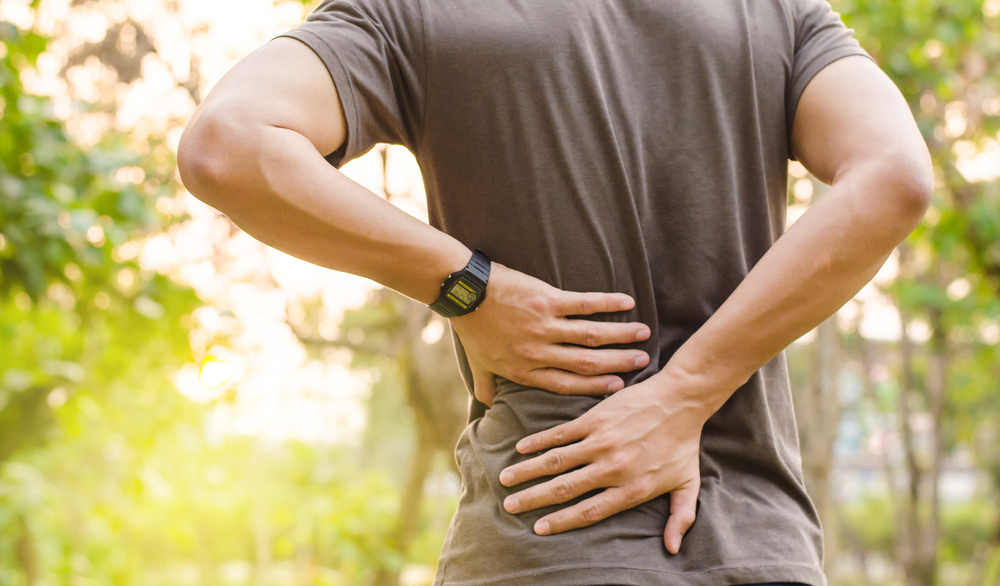
HOW TO STICK TO YOUR HEALTH & FITNESS RESOLUTIONS THIS YEAR , WITHOUT INJURY or ISSUES
So here we are at the beginning of a new year, and probably, like most people including myself, you have set yourself ambitious and challenging health and fitness resolutions for 2023. Perhaps you are a beginner and determined to start running, or maybe you are wanting to take the next step in your fitness journey which means you will need to increase your intensity and volume. Either way, as soon as we change our activity levels, we risk injury, so I have put together a list of tips to help you avoid injury on your fitness journey ...
GET THE OK FROM YOUR GP
I would always advise checking in with your GP before you start any arduous activity, especially if you have had any past serious medical conditions. It is very unlikely that your GP will discourage you from exercise but they may give you some useful advice or safety parameters to work within .
MAKE SURE YOU HAVE THE RIGHT EQUIPMENT, ESPECIALLY SHOES
This applies especially if you plan to start running. I have seen so many clients who have started running and then ended up with ankle, calf or knee issues , all of which have been, at the very least, exacerbated by their shoes. If you are planning to start running, then please don’t just grab your old trainers or any soft shoes that you have lying around but do visit a shoe store and get your gait checked. It may seem expensive and unnecessary, but trust me, there is nothing more frustrating than picking up an injury that could easily have been avoided. Outdoor cycling is another example where equipment and in particular the correct set up for your specific measurements , is key. If your seat height is incorrect for example, this will cause future issues.
TAKE PROFESSIONAL ADVICE
Especially if you are new to the activity. Poor technique almost certainly leads to aches, pains and injury whether you are running around the park, cycling or using weights in the gym. If you have access to advice, take it. Again, the number of clients that come to see me with issues caused by poor technique is phenomenal so please take advice if you are unsure.
WARM UP AND COOL DOWN
I know that we are often short of time and so warming up and cooling down, can seem like a pain BUT these two steps, if done correctly, can reduce injury risk, post exercise muscle pain and may even help to improve your performance moving forward.
The warm up should include a pulse raiser activity and dynamic stretches . These two activities will slowly increase your heart rate and prepare your muscles and bodily systems for the work ahead. The warm up should focus on the muscles that are to be used and also, as far as possible, imitate the imminent workout.
The cool down should allow your body to return to its pre activity state and ideally should include static stretches. Again the cool down should focus on the muscles used during the workout.
DON’T OVERTRAIN , and MAKE SURE YOU REST
When we overtrain , especially if our body, muscles or bones are unused to the level of intensity or volume then we of course risk, at the very least, pain but possibly injury so it is essential that when we first start training we respect our limitations and make sure that we are taking adequate time to rest and recover. Also if we fail to rest properly then our concentration will be affected which again may lead to accidents and injuries.
CROSS TRAIN
It is really important that whatever our key focus is, whether cardio, strength or flexibility training , we cross train so we supplement our key workout with elements from the other types of fitness.
Cross training helps to avoid overuse injuries by allowing your body to use different rmuscle groups, whilst allowing the other areas to recover in between use.
Cross training may also help to equalise muscular imbalances which again will reduce risk of pain of injury. For example, a complete focus on cardio fitness might lead one to neglect core or glute strength and a weak core or weak hips can lead to a huge number of issues from back pain to sciatica even knee or ankle issues.
Likewise if we focus on strength training without also thinking about our flexibility or cardio then we can end up strong but immobile and again immobility can cause a number of issues such as lower and upper back pain as well as tension in neck and shoulders.
It is really essential to have a clear goal or objective when you train, but neglecting other key areas potentially will cause issues in the future.
HAVE REGULAR MASSAGES
For anyone participating in regular physical activity , whether you are a beginner or seasoned athlete, massage therapy is a key tool that will help you train harder and longer, recover faster and find and repair any niggling injuries before they become chronic issues.
Massage therapy can improve your range of motion and flexibility. Working out and strength training in particular , increases muscle tension which leads to muscles and other soft tissues adhering. This can lead to muscles forming adhesions (knots) as well as reduced mobility, Massage manually manipulates and stretches muscles.
Massage has also been known to decrease delayed onset muscle soreness, in addition to stiffness and fatigue after a workout.
Massage therapy also promotes relaxation and improves sleeps which is of course a bonus if you are training frequently.
Finally, if you are working with a soft tissue therapist, he or she will be able to help with many common sporting injuries such as muscle strains and provide you with tips and rehab plans to speed up your recovery.
Age Is No Limit *
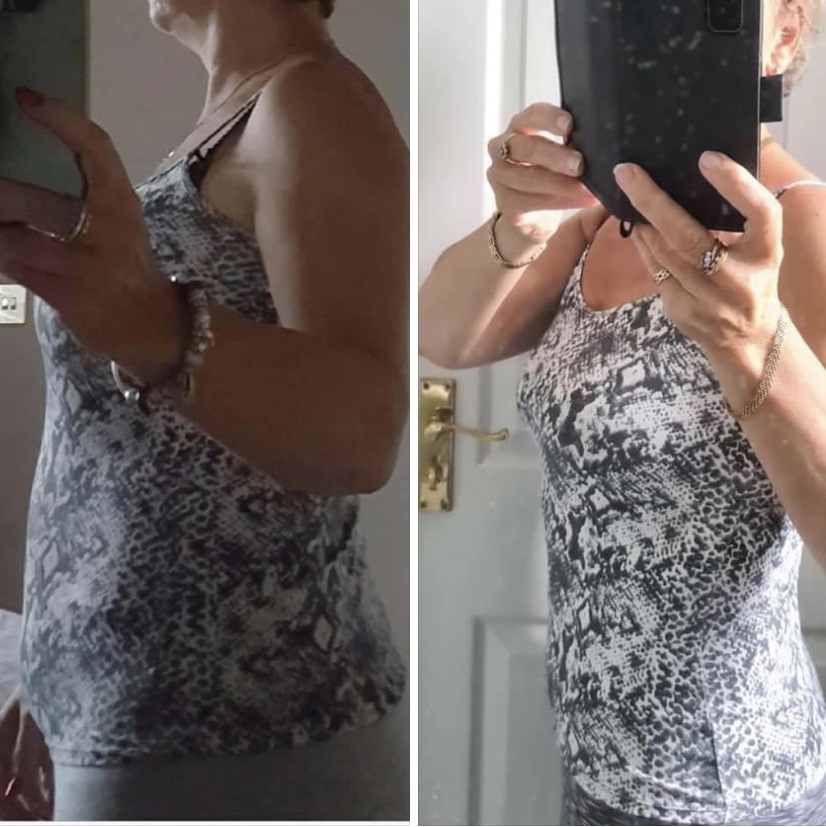
From this to this...
No fancy diets, no extreme training, no time consuming counting calories , just real food, strength training, consistency and commitment!
My 50 something year old client proving that its never too late to make a change!
And this why I love my job and my clients
How To Live Longer and Stronger *
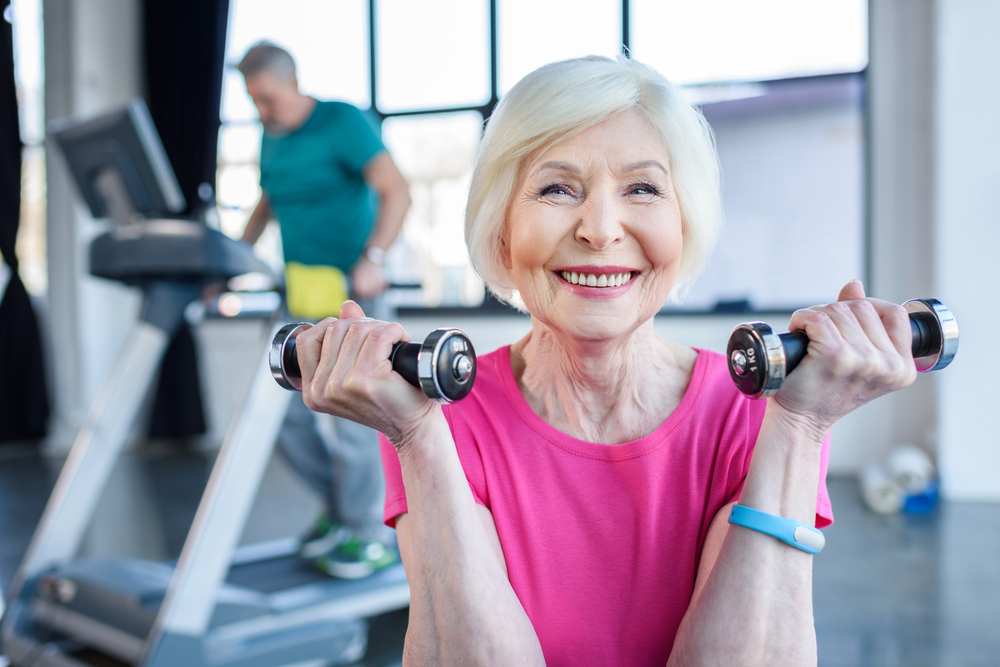
Life expectancy is at its all-time high, the fact that so many people are living longer, well into their 80s and 90s is a wonderful ideal. However, the sad reality is that living longer doesn’t always include a good quality of life, it’s not a package deal.
Swallowing handfuls of pills every day, losing independence and requiring nursing care is not the way most people would choose to spend their last years.
The good news is that there are steps you can take to reduce the risk of this outcome. Making a conscious decision to take small steps (literally) from today, could make all the difference in your life going forward.
Physical activity, when performed regularly, has been proven to prevent and help manage more than 20 chronic conditions. These include coronary heart disease, stroke, type 2 diabetes, cancer, obesity, mental health problems and musculoskeletal conditions.
Sadly, you can’t bank the benefits of exercise from your youth. Ideally being active throughout your lifespan would give optimal health benefits, but research has shown the health gains achieved through physical activity can be attained at any time. So, it doesn’t matter when you start, as long as you start!
Regardless of your activity starting point, there are benefits to be gained for anyone who increases their activity levels. Individuals that follow the recommended physical activity guidelines have shown to have optimal health benefits of a 39% reduced risk of dying from any disease.
The truth is that doing anything is better than nothing – even doing half the amount of the recommended weekly activity has shown a 20% lower risk of mortality.
Regular physical activity also roughly halves your chance of developing some cancers, like bowel and breast cancer. Studies have shown that people who continued to exercise once diagnosed with cancer had significantly less cancer deaths and any-cause death than those who were inactive.
I've created a bank of leaflets that provide advice on improving your activity levels. I have also included information on specific condtions such as COPD, Type 2 diabetes and Depression, as well as the impact of increased activity on things like dementia and poor balance. They are FREE and downloadable so please check them out.
Click here for access
Best wishes
Nikki
Do You Suffer With Back Pain? *
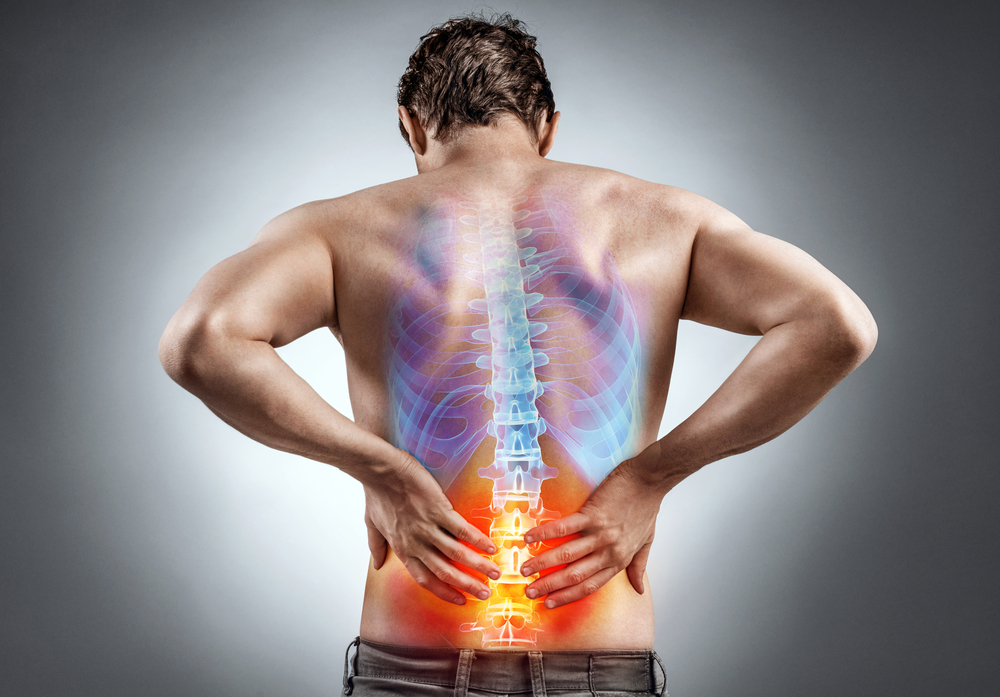
Do You Suffer With Back Pain?
Back pain has always been a big problem, it is probably the number one reason that people come to see me. Right now, with the current lockdown and the inability to treat clients hands on, I wanted to talk a little about how you might be able to help yourselves until you can get hands on treatment.
Back pain is unfortunately a common issue and it can range from acute pain, which might be sporadic and last for up to 6 weeks or more to, to chronic pain which last for more than 3 months.
It can be the result of a number of factors including structural issues or diseases with the spine, poor posture, muscular imbalances or referred pain. A huge number of back cases will be diagnosed as non specific back pan which means that no physiological or abnormalities on diagnostic tests can be found.
If you are experiencing back pain and any of the following symptoms, I would suggest you consult your GP or health professional :
- Pins and Needles
- Difficulty walking or weakness in the legs
- Disturbance of bladder or bowel function
- Numbness around the groin area
- A high temperature
- Unintentional weightloss
- A swelling or deformity in your back
- No improvement or worsening of pain after a few weeks
- The pain is stopping you from carrying out your normal activities including sleeping
If neither of the above apply though, there are things that you can do to prevent back pain or provide some relief. These include staying as active as possible and avoiding sitting for long periods, taking anti-inflammatory painkillers (but check with health professional first), using heat and or ice therapy, ensuring that your office ergonomics are sound and that your mattress supports you adequately. In addition, regular stretching will help and with that in mind, I have put together a short routine, which you should check out here
I have also provided some FREE downloadable resources that provide additional advice around such things as sleeping positions and daily stretch and yoga routines that will help relieve back pain. Just click on this link to access them https://bit.ly/2V1al2j
Good luck !
New Year , New You ! *
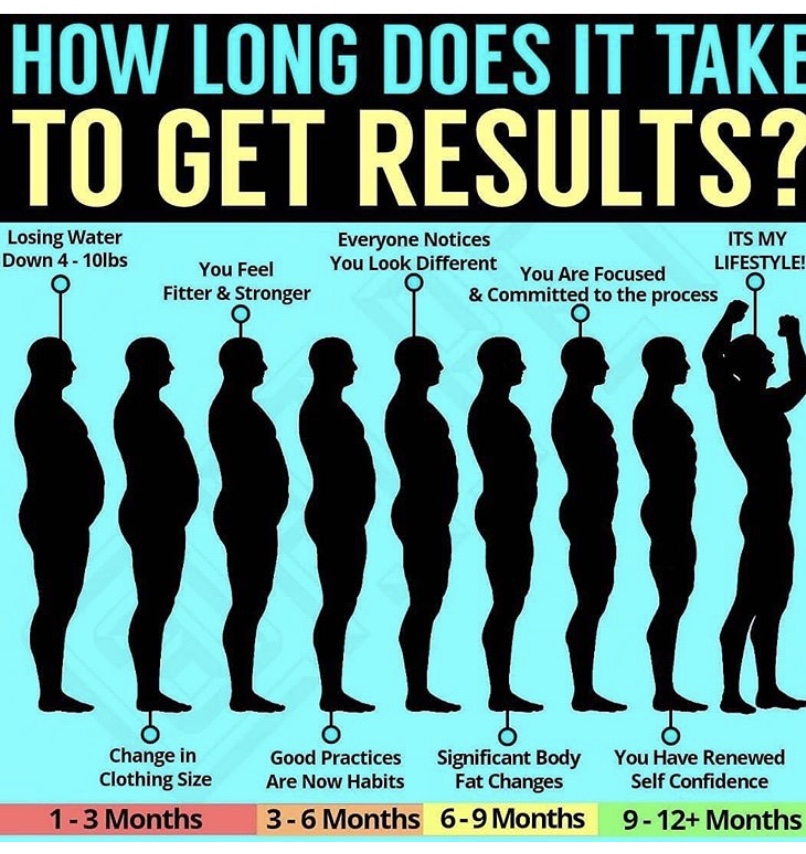
So it’s the New Year and no doubt some of you will be starting your “New Year, New You” weight loss resolutions. Good luck!!
I’ve listed a few tips that should help you along the way.
- BE REALISTIC - Don’t expect immediate changes. The slower and healthier the weight loss, the more likely it will stay off.
- CALORIE DEFICT - This is key!! You need to burn more than you consume. Check out the Harris Benedict Formula to work out your calorie requirements ( your daily energy expenditure) and track your calories. I do not normally advocate calorie counting but if you are really struggling to lose weight this might help you understand where you are going wrong. Try it for a couple of days and see what it reveals.
- TRUST THE PROCESS - A calorie deficit via improved eating and increased activity will result in weight loss. It won’t happen overnight but it will happen so just enjoy the other benefits, such as healthier lifestyle, and increased strength and fitness in the meantime.
- KISS - Keep it simple stupid. Don’t make it hard by giving yourself lots of complicated new rules to follow. Make small changes, set tiny realistic goals. The easier it is , the more sustainable.
- ENJOY - That might sound ridiculous but you might surprise yourself. If you stick to the above, not only will you eventually see weight loss, but maybe just as important, your self esteem will go through the roof, you will feel stronger and you will be happier (endorphins do exist and if you start exercising, trust me, you will feel a buzz, I promise ! )
I hope that helps.
Get in touch if you have any questions or need help, otherwise good luck . Yoive got this !
Why Lifting Weights Can Improve Your Mental Health *

WHY STRENGTH TRAINING IS KEY IF YOU ARE FEELING DEPRESSED, ANXIOUS OR LOW
As it is Mental Health Awareness Week, I thought it would be timely to talk about the effects of strength training on mental health.
I, like so many others, have suffered with and still do occasionally suffer with bouts of low mood, anxiety, stress and fatigue. The one thing that consistently seems to improve my mood is going to the gym and lifting weights. I know it sounds trite but it has always worked for me, especially when I’m struggling with motivation to actually get to the gym (and trust me, even personal trainers sometimes struggle with motivation to work out). I know that however fed up, demotivated and stressed out I may feel on entering the gym, I always leave feeling energised, focused, accomplished, strong and ready to deal with whatever is stressing me out.
And it’s not just me. So many of my clients give me similar feedback. Most clients will contact me initially to lose weight or improve their health and fitness but in most all cases, clients will at some point report that, even if they initially hated the thought of working out, they actually soon notice and grow to love the buzz, the energy, the feelings of empowerment and the improvement in self confidence and self esteem that come with strength training. Many of them report that they start noticing these changes long before they notice any changes in their appearance or fitness.
So is this just anecdotal or does strength training really impact ones’ mood?
Well, a recent study shows that regardless of age, sex or overall health status, strength training is linked to a significant reduction in depressive symptoms. In fact the greatest gains were found in those with greater depressive symptoms.
The research also showed that supervised sessions resulted in greater gains than unsupervised sessions.
Research also tells us that you don’t have to turn into Arnold Schwarzenegger and lift heavy weights every day to see benefits. In fact research shows that lifting moderate weights just 1 - 2 hours per week, has the greatest effects on anxiety.
We also know that strength training increases endorphins which reduce anxiety and depression and norepinephrine which can boost your brains ability to deal with stress.
So its not just anecdotal, science shows that strength training improves your mood.
Even if you ignore the science though I believe that if you apply the following 5 key principles of strength training to your life, then it follows that your mood will improve , self confidence will grow and your mental resilience will become stronger. It certainly has been the case for me.
- Growth begins outside of your comfort zone. A good training plan will be progressive, in other words it will continue to get harder. If you have a great PT, he or she will constantly push you past your limits and out of your comfort zone, as outside of your comfort zone is where growth and improvement begins. This is also true of life. Pushing yourself past your limits can only be a positive thing, it encourages growth.
- Sometimes with pain comes gain...sometimes . With strength training, as with life, sometimes you need to experience pain and hurt to get stronger. In order to build strong muscles you need to work them so hard that the muscle fibres became damaged. These fibres will then repair themselves and during that process become bigger and stronger. I definitely see parallels there with my own life experiences. Do you?
- Perseverance is key Resistance or strength training is ultimately about overcoming obstacles in a controlled, disciplined and focused manner. You may fail often but when you finally get that lift, you feel powerful and accomplished. In order to be successful you need to practise perseverance, tenacity and grit. These exact same qualities are the traits of mental resilience which helps you bounce back from difficult experiences.
- Mindfulness . We all have heard about how important it is to pay attention to the present moment and not be distracted by the past or future. Mindfulness is essential when you are lifting. When you are lifting weights you need to be completely focused on that moment only. If you want to lift successfully and safely, you have to focus on you, you have to give yourself YOUR time and not allow other things to distract you. Again, this is true in life. We all know the importance of “ME TIME” but how often do we take it. For me, my time at the gym is probably one of the only times that I do not allow myself to be distracted by other things. It’s my “ME TIME”
- If you aim for nothing, you’ll hit it every time A good training programme requires realistic but challenging goals that will make you feel awesome once you have achieved them. In life, if you have clear goals, then you have an idea of what you want to achieve and how to go about achieving it. With goal achievement comes self pride, feelings of achievement, self confidence and renewed ambition.
So, hopefully you can see that strength training can improve your mental health. So, if you are feeling a little low, get yourself to the gym, book a session with a PT who can provide you with a safe and appropriate plan and start lifting.
Trust me, stick with it and you will not only get fitter and stronger but you will feel better.
Good luck !
AGE & Fitness *

AGE & FITNESS
Why it’s never too late to start exercising
I felt inspired to write about age and fitness, following several amazing conversations I’ve had over the last few days with some of my clients. One of those clients announced that she had been looking through old photos of herself and had just realised that she has never in her 60 plus years felt as fit, strong and energetic as she dopes now and that as a result of this new found energy and confidence she has decided to take up kayaking, something that she has always wanted to do but never had the confidence to try before now. Plus she is now running 5k a week. Before she started working with me , she struggled to walk up her own stairs without pain and losing her breath, she was constantly in pain and she just felt "old"
Another of my “older” clients who originally started to see me because she is at risk of osteoporosis and wanted to avoid medication, just told me that since she started weight training with me, she has been advised by her doctor that her bone density has increased which is great news...
Another of my 60 year old clients last night said that since she started training, although she still finds it hard she has noticed not only that she is losing weight but that she feels stronger, she stands taller and most importantly she feels more confident and capable. She hated PE at school and finds it incredible that now in her 60s she has discovered that she actually enjoys the effect that working out has on her . She only started working out because her children were worried about her weight and health and now she runs on her own and often sticks around after the session has ended, to row a couple of 100 metres or go for a quick run around the studio.
Finally, another clients started working with me just before her “significant” birthday..when she contacted me she was still struggling with the effects of a broken back years before, she was inactive and unhappy ...She has since completed a half marathon and triathlon and now physical activity is part of her every day life...
I myself, have just had a significant birthday and yet feel stronger, fitter and in better health than I ever have. I hated any form of exercise and I always struggled with my weight and yet now I couldn't imagine a week without some form of exercise.
I really believe that it is never too late to start exercising and that, if you give it time, you will start to enjoy, maybe not the exercise itself but definitely the benefits...
Apart from that feeling of accomplishment and subsequent confidence here are some other reasons why you should continue or start exercising whatever your age...
- You will live longer - a sedentary lifestyle is a leading cause of death and disability. Exercise helps to prevent and or manage conditions like strokes, heart disease, osteoarthritis and type 2 diabetes
- Improves mood and feelings of self esteem and independence - Physical activity relieves stress and the endorphins produced can actually help reduces feelings of sadness and anxiety. Feeling strong increases your self confidence
- Reduces your risk of falling - Exercise builds strength, stamina and flexibility and improves balance. This, in conjunction with your stronger bones and increased confidence, reduces the risk of falling
- Helps maintain the ability to carry out daily activities - Do you struggle to walk up the stairs, do you suffer with back pain? Do you spend more time sitting down than being physically active ? Keeping fit will keep you fit, and reduce your pain
- Reduces the risk of dementia developing - Studies show that exercise improves thinking and memory and reduces the risk of dementia
So, if you want to stay pain free, reduce your risk of mental illness and stay independent well into your old age, ...keep moving !!
Check with your GP of course before beginning or increasing phyisical activity
Top Tips For Losing Weight *
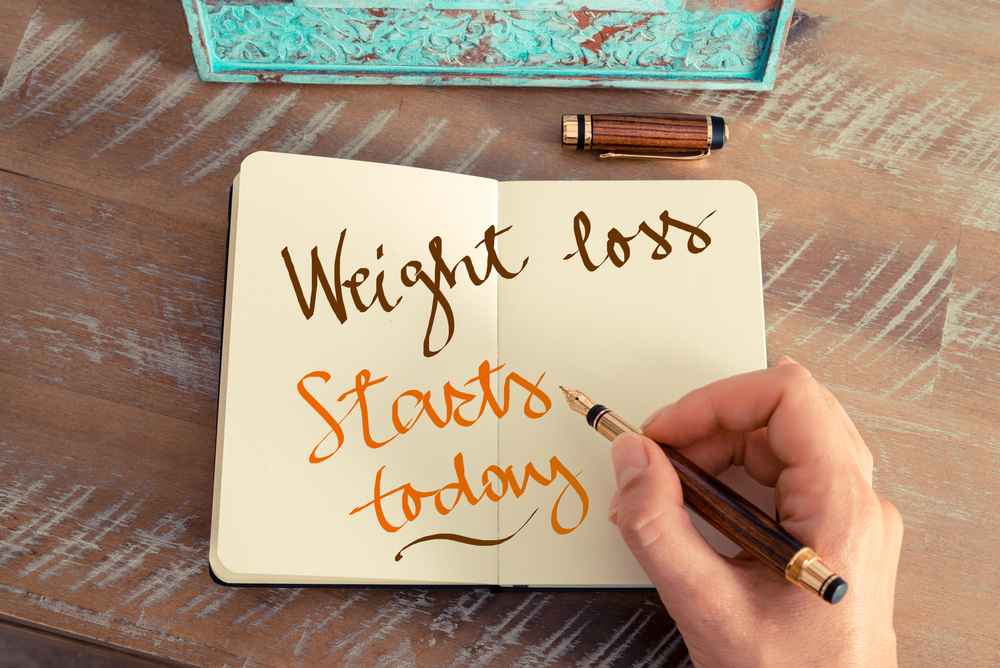
People constantly ask me …what do I need to do to lose weight?
Well, apart from work with me of course 😊 I believe that it really boils down to 5 simple things.
1. DON'T JUDGE YOURSELF BY NORMAL SCALES
Normal scales only measure "weight" and not "fat" loss. If you do need to lose weight, then your focus should be "fat" loss. When you embark on a restrictive diet or do lots and lots of moderate intensity cardio, you may well see the weight drop off quickly BUT you are probably losing "muscle" not "fat".
The more muscle you lose the less sustainable your weight loss in the long Why? Because muscle will burn up calories at an intense rate even when you are chilling on the sofa. You don’t need to turn into a body builder just focus on becoming leaner.
Also how reliable are your scales exactly? How many times have you jumped off the scales, ecstatic because you have lost a couple of pounds, only to see those pounds and more back on the next day or maybe even on that same day?
Your body weight is subject to so many changes throughout the day. For example how much water you drink, how much you have sweated, even your toilet habits! and yes that is a fact
So DITCH THE SCALES use a tape measure instead AND INCREASE YOUR MUSCLE MASS.
2. NOT EATING ENOUGH WILL NOT HELP YOU TO LOSE WEIGHT
Focus on QUALITY and not QUANTITY ....and eat REAL food rather than heavily processed foods even if they are labelled "light" or "healthy". If you starve your body, it doesn't know you are on a temporary diet it just goes into starvation mode and starts to store fat so FILL YOUR BOOTS with GOOD food.
All food is good food in moderation but the best foods for weight loss are lean proteins, healthy fats and low GI starchy carbs.
3. EAT WHEN YOU ARE HUNGRY
If you eat when you are angry, sad, bored or stressed that's a lot of extra food that your body does not need which could end up as unwanted body weight.
I am an emotional eater as are a number of my clients and we have come up with ways to control it. If you are an emotional eater, you really should try and address it and I promise you, you will be amazed at the difference it will make.
4. DRINK WATER
Keep hydrated. How much? It really depends on so many things such as your level of physical activity, the temperature of the environment, humidity, your respiration rate etc ...but I'd try and aim for at least 1.5 litres a day ....
5. KEEP ACTIVE
But remember not all exercise is the same. If you want to lose "fat" specifically then you need to do muscle fitness training not just cardio. Body weight exercises, squats, pressups, lunges are all great examples and of course if you have dumbbells, kettlebells or access to a gym then all the better ...
Cardio is, of course, good for you too and necessary BUT if you are trying to lose weight then you should do muscle building exercises.
So those are my 5 top tips….
I hope you found the article interesting and helpful and please do contact me if you need any more information
Take care
Nikki
Can Stress Make You Fat? *
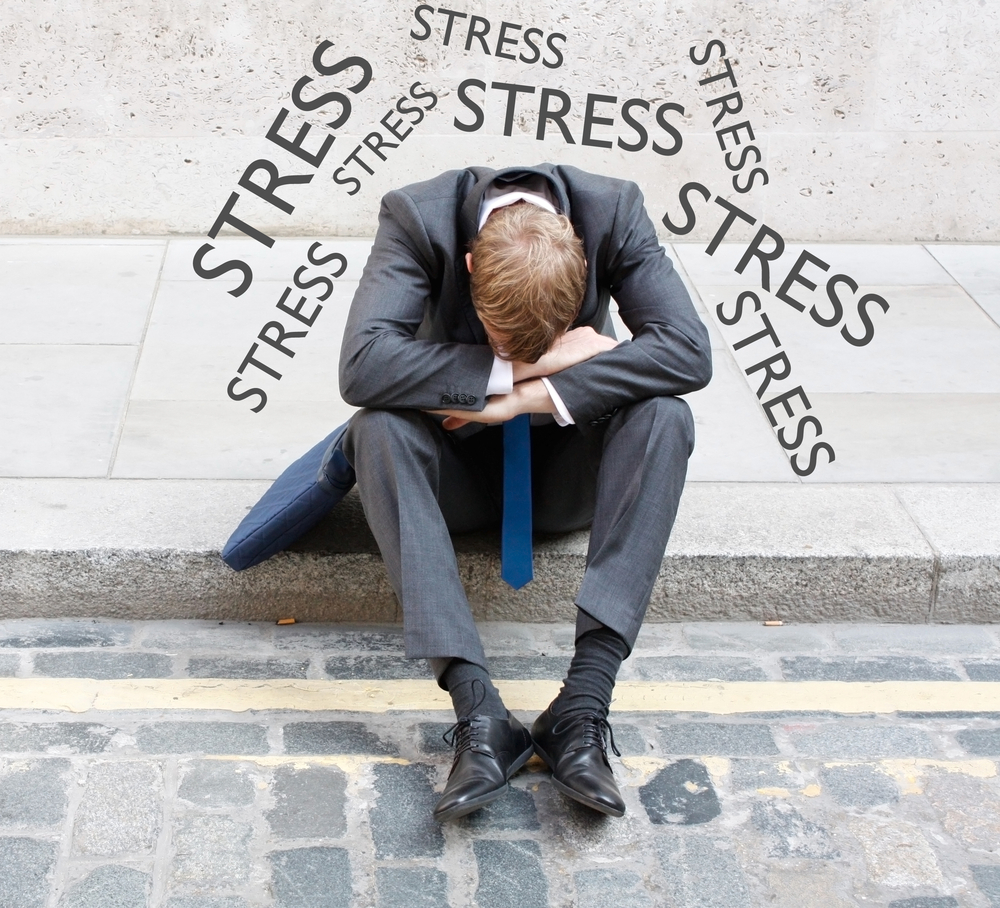
For most of us “stress” is a fact of life but unfortunately it can also influence our weight …
“Even if you usually eat well and exercise, chronic high stress can prevent you from losing weight or even add pounds.
Pamela Peeke - Body For Life For Women
When you are stressed, your body releases adrenaline which gives you instant energy so that you can fight or flee the threat; and cortisol, which helps to replenish that energy once the threat has passed.
This can make you hungry and you may crave sweet, salty and high fat foods because these foods stimulate the brain to release pleasure chemicals that reduce tensions. This soothing effect can become addictive. Also the fuel that your body needs during fight or flee is sugar, which is why we crave carbs when we are stressed.
This process is brilliant when, as in back in Paleolithic times for example, our stress came in the form of physical danger, when we really did need to fight or flee. Stress was acute but short lived. But it’s not so great when we look at todays typical stress inducing situations such as early morning traffic jams, tight deadlines in our sedentary jobs and financial worries.
Unlike fleeing from a grizzly bear, modern day typical stresses do not expend any energy. We don’t fight or flee, rather we sit and stew in frustration. Also, stresses today tend to be unrelenting and chronic as opposed to acute but short lived. Unfortunately our neuroendocrine system hasn't caught on to this so we still get the cortisol, along with the associated signal to replenish our energy, in other words we feel hungry and we eat.
Stress can also dictate where your fat is stored. Again, back when we were fighting off bears and tigers, our bodies adapted to store fat supplies for the long haul. Today this fat, which is stored in our bellies and is also known as visceral or abdominal fat, is particularly dangerous because it surrounds vital organs and releases fatty acids into the blood, raising cholesterol and insulin levels and paving the way for heart disease and diabetes.
Another consequence of cortisol is the effect it has on testosterone. Whilst our adrenal glands are releasing cortisol, production of the muscle building hormone, testosterone, slows down. Over time this leads to a decrease in muscle mass which means you burn less calories.
Stress can also trigger emotional eating. When we have a surge of adrenaline, as part of our flight or flee response, we get fidgety, activated and anxious and some people become orally fidgety. This can lead to nail biting or teeth grinding or mindless snacking, just to give our mouths something to do.
So how do we break the cycle?
Unfortunately we cannot avoid stress but these tips may help:
Exercise - But not too much as remember exercise is a stressor on the body too
Sleep - Cortisol levels rise when we don’t get enough rest. Your body perceives sleep deprivation as a major stressor
Eat - Don’t go on a strict diet. Eat breakfast. Curtail caffeine as when you combine stress with caffeine it raises cortisol levels more than stress alone.
Relax - Devote time to relaxation. Relaxing stimulates the brain to produce chemicals that counter the effects of stress.
Are you a mindless eater? *
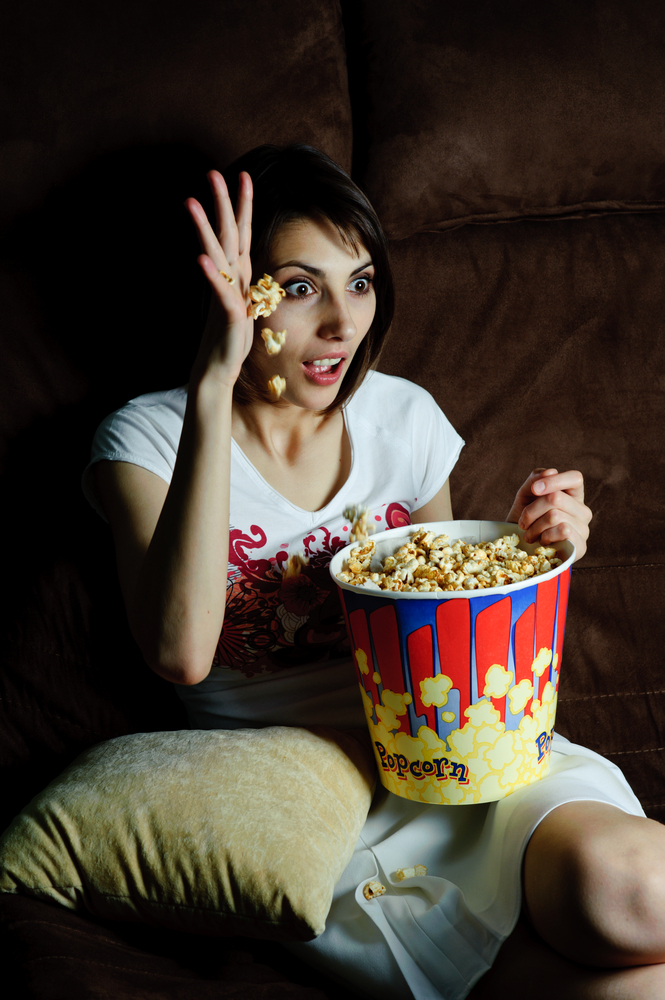
Have you ever polished off a family bag of crisps or Maltesers without even realising it? You only intended to have a handful but minutes later the bag was empty.
Do you stop eating when you are comfortably full or when your plate is empty?
Can you describe the smell, taste and texture of the last thing you ate?
Could you actually list everything you have eaten today?
Could you be a mindless eater and if so, so what?
Well, mindless eating can actually lead to consuming excess calories which will eventually lead to unwanted weight gain.
If you eat when you're hungry that is a good thing, you are responding to the needs of your body. However, if you find yourself eating, not when you are hungry but when you are bored, or stressed or just eating because you always eat at that time or because everybody else is eating, then you are possibly eating mindlessly, which is not good, especially if you are trying to lose weight.
So what does it mean to eat mindfully and why is it important ?
Eating mindfully means paying attention to when, why and what you eat? It means understanding if you are eating because you are hungry or because you are bored?
It means being aware of how you feel whilst eating and noticing when you are full, which might be before you actually clear your plate.
It means being more aware of what you are eating and whether it is good for you.
If you eat mindfully then you will eat when you are hungry and you will stop eating when you are full.
You will curb emotional eating because you will recognise that it is your emotion rather than your appetite that is triggering this desire to eat.
You will care more about what you actually eat because you want to feel good after you've eaten.
Ultimately eating mindfully means that you take care about what you are putting into your body.
A few tips on how to eat mindfully.
Eat when you are hungry
Do you always eat a big meal at 6pm because that’s the routine? Do you always grab a large box of popcorn at the cinema because , well just because…?
Check yourself. Are you responding to hunger or something else? Before you eat, ask yourself if you are hungry? Would an apple or a bowl of healthy salad with mixed beans, suffice? If not, then possibly you are not hungry just bored.
Slow down
Sip water as you eat.
Pause and put your cutlery down between each bite. Some experts suggest switching your fork to your non dominant hand, or using chopsticks so that you really have to slow down and think about what you are eating.
If you slow down you also get the opportunity to check whether you are full or not. It has been suggested that when we eat we all experience an “eating pause”, a moment when we will put our cutlery down and stop eating. This pause is our bodies way of telling us that we are now comfortably full, but more often than not, after a quick break, we look down at our plates, see that they are not clear and resume eating. This is now mindless eating,
Don’t multitask
Research shows that eating in front of the TV increases food intake by 14%, talking to a friend whilst you eat can increase consumption by 18%. Doing two things at once inhibits concentration and awareness so sit at the table, switch off the TV, put down the paper and ignore the phone.
Mix it up
Eat when you are hungry rather than when you normally eat. Also vary your diet. If every morning you are on automatic pilot, reaching for the breakfast cereal and coffee pot then this is mindless eating. Try something new. It will force you to think about what you are eating.
Also, research shows that the bigger the plate or serving, the more you will eat without thinking, so revisit your portion sizes.
And Fnally and most importantly ...
Eat what you want and Enjoy your food
Mindful eating is not about restricting foods, counting calories or worrying about the “ideal” body size. It is about listening and responding to your appetite. If you really want to eat a calorie dense food, go ahead but be aware and mindful of your portion size. If you eat mindfully then ultimately you will really care about the quality and quantity of what you put into your body
I hope you found the article interesting and useful. Please do contact me if you have any comments or questions.
Nikki
The same new year resolutions as last year? How to actually keep them this time? *
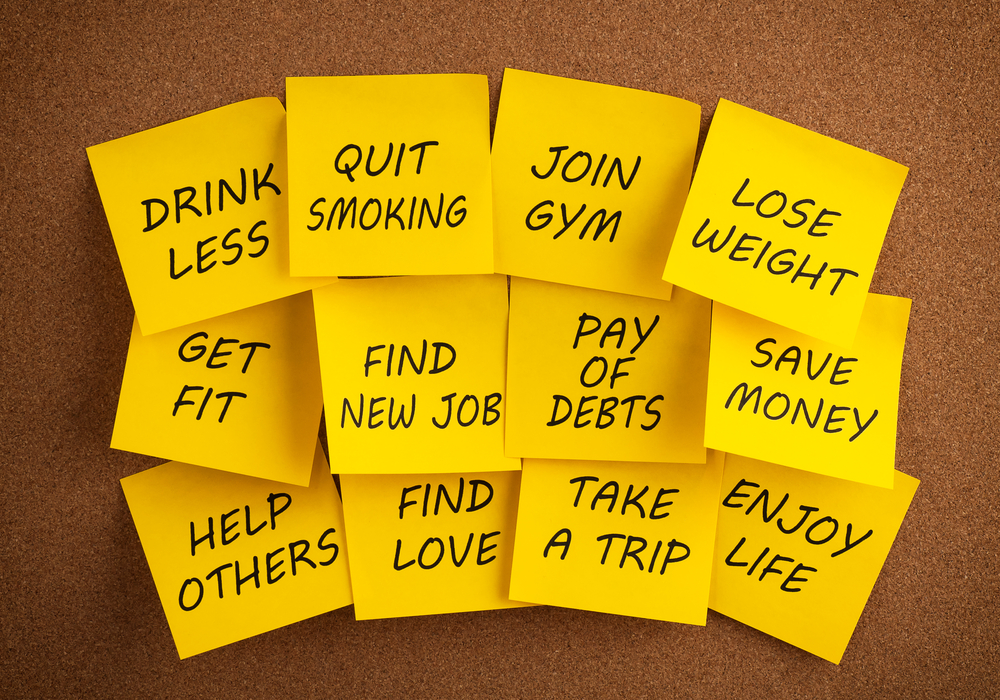
It's that time of year when most people are thinking about their New Year resolutions and promising themselves that this time they will lose weight, be happier, stop smoking, exercise more. But according to a study by psychologist Richard Wiseman, 78% of all New Year resolutions fail. We break them and then feel more dispirited and despondent than before. We fail to keep because often the resolutions are set at the last minute, without any real forethought or planning.
So, how can do we become one of the 22%ers that keep our resolutions?
Make them SMART goals rather than vague resolutions. Make sure your goal is Specific, Measurable, Achievable, Relevant and Time bound. So for example, rather than resolving to lose weight, set yourself a goal to lose a specific amount of weight by a certain date.
A goal without a plan is just a wish so plan, plan, plan. Have you got the resources and knowledge you need to attain this goal? Ask for help?
Keep your list short and simple. It is so much easier to set and attain a small series of goals rather than one extreme one.
Set the bar low. Be kind to yourself. Richard Wiseman says " Failing to achieve your ambitions is often psychologically harmful because it can rob people of a sense of self control" Surely it is better to achieve a small goal, pat yourself on the back and then move onto the next one.
So good luck with 2015.
* The material on this website is provided for educational purposes only. We cannot guarantee any weight loss or fitness results.